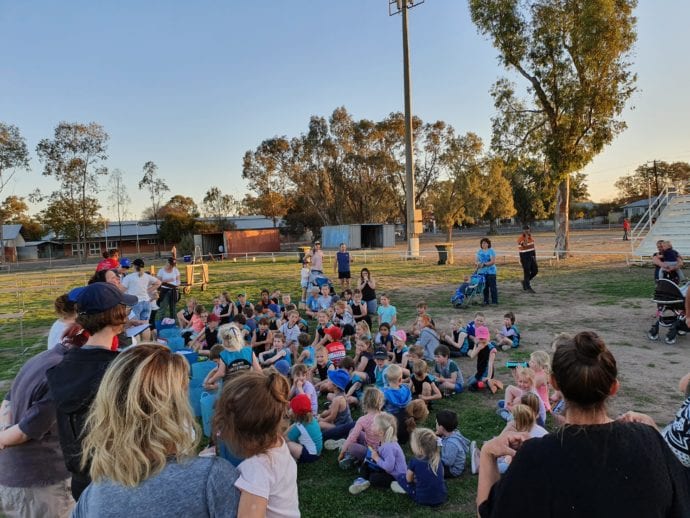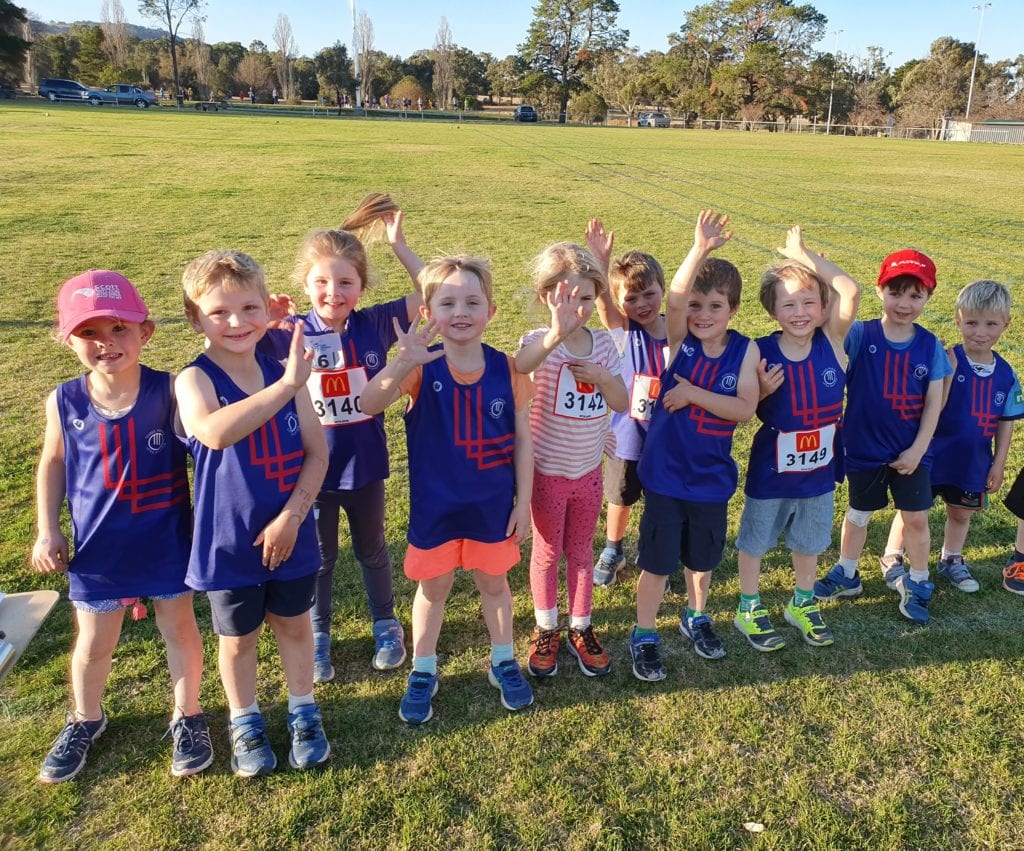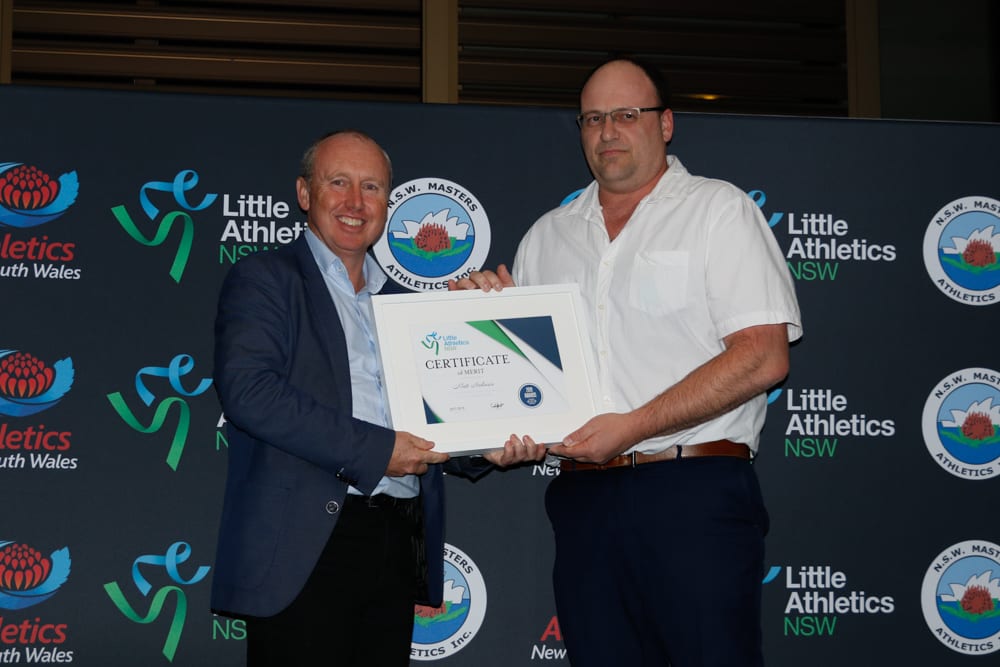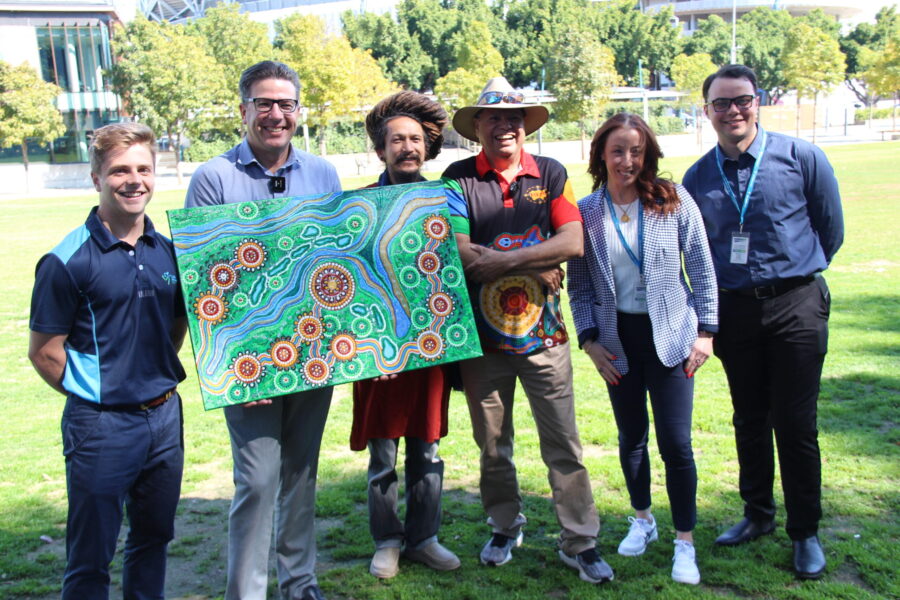‘Bigger than Victoria’: Western Plains Zone Coordinator Matt Andrews clocking 7,000km to aid Regional Centres

The duties of a Little Athletics Zone Coordinator are undeniably strenuous – managing dozens of centres in a voluntary role requires a dedicated and strong-minded character.
However, managing a zone larger than Victoria comes with a whole new set of challenges.
Western Plains Zone Coordinator Matt Andrews was presented with a Merit Award at the Little Athletics NSW Awards Dinner in July for highly praiseworthy service to the sport, and deservedly so.
Before he was the Western Plain Zone Coordinator, Andrews was a member of the Glenbrook LAC committee for over 20 years, during eight of which he was President. He has three sons, all of which competed at Glenbrook LAC; the eldest started there in 2002, with the youngest entering his final season this year.
Andrews works for an engineering business in Sydney, where he’s lived for more than 28 years. Proximity becomes a notable barrier, with long road trips required to interact with the state’s westernmost centres effectively.
“The last Zone Coordinator retired last year, and nobody was willing to take over for that zone. I knew all the centres because I was the Region 3 Coordinator for the last seven years, so I volunteered,” said Andrews.
“My term will end this year, but it looks like at this stage I’ll be going around for another two years.
“I’m nowhere near my zone I’m afraid; I’m a Sydney boy.
“I think I drove 7,000kms last year visiting the centres.”
During the 2018/19 summer, Andrews was central to the preservation of centres on the Western Plains and with the help of LANSW Regional Support Officer Mick Gardiner, a brand-new Little Athletics centre has successfully formed just in time for the 2019/20 season.

Based in Coolah, Three Rivers LAC is a newly introduced club, servicing an area of over 100km around them. A fresh-faced, enthusiastic committee was aiming for 40 registrations during their debut season.
As of this week, Three Rivers LAC already has 77 registrations.
The centre’s first competition was held on Wednesday evening, and Andrews was particularly impressed with the committee’s coordination and stylish athlete uniforms.
“They were able to adapt at the last minute and deal with the last-minute surge, got through their first day of competition and earned a couple of beers,” said Andrews.
“The amount of effort they’ve put in is incredible to get where they are already in just a few weeks.
“It’s hard work to start a club from scratch, and they’ve gone above and beyond to be so organised in a couple of months.”
Another centre kicking goals in the Western Plains is Walgett LAC. Despite facing multiple socio-economic barriers, the centre has already secured 134 registrations, one of the largest in the region.
One major problem for rural centres in the Western Plains is a shortage of volunteers – many clubs are struggling to fill their committees with dedicated personnel.
“The primary reason some centres have stopped is not because of a lack of kids; it’s purely because they’ve been unable to form a committee,” said Andrews.
“Trying to get parents to put their hand up and run a club is very difficult.
“My clubs out west get by on five people doing all that work.”
With many parents from the Western Plains working in mining and farming, it’s tough for parents to assist at mid-afternoon competition days during the working week. The New South Wales drought has also taken its toll on farming communities in the area.
“The drought is definitely a reason why it’s harder and harder to get parents to help because they have to spend every spare minute on the property,” said Andrews.
“It’s a spiral; you can’t rectify it.
“What can you do?”

Andrews has inevitably faced challenges since taking on the Western Plains Zone Coordinator role last year, but he’s optimistic about the future.
“In my current role, most of my time is spent trying to keep the 20 centres out West afloat,” said Andrews.
“This year we had no centre close down from last year, which is a start.
“Last year was a record number of zone entries for the zone – still not much compared to metro zones.
“It’s a completely different world in the smaller country centres.”
Andrews and Gardiner have focused on refining competition days to keep the athletes engaged and entertained. This emphasis on retention will hopefully increase registrations and then ideally improve committee succession.
“We’re trying to assist them in every way possible to future-proof them; to keep these clubs afloat by doing whatever we can to help them.”
“Mick’s been visiting centres and running basic event instruction courses to help the parents.
“You need to look organised – if the club seems disorganised, people are less likely to volunteer to help out or be on the committee.
“The more engaged, trained and knowledgeable they are, the more chance they are to hang around and join committees.
“You don’t want to put overworked people on more work, but it’s a short-term pain, long-term gain thing.”


